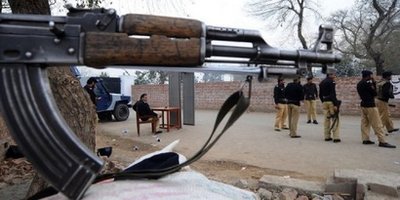
NEW YORK: The UN political chief has called on Israel to ensure that urgently needed humanitarian supplies for the Gaza Strip are not “held hostage to political and security developments.”
Rosemary DiCarlo, undersecretary-general for political afairs, told the Security Council its meeting was taking place “in the wake of yet another series of violent escalations that threatened to plunge Gaza into war.”
She said the recurring violence “highlights the urgency” of UN and Egyptian-led efforts, along with regional and international partners, “to prevent another devastating outbreak of hostilities, respond to the most urgent humanitarian needs, and support intra-Palestinian reconciliation.”
DiCarlo said funding for UN emergency fuel to keep about 250 hospitals, water and sanitation facilities in Gaza operating at a minimum level “has now run out.”
She appealed for $4.5 million to keep these critical facilities operating through the end of the year.
DiCarlo also expressed concern at “the dangerously short supply of essential medicines, with 40 percent of essential drugs completely depleted.”
Israel and Egypt have imposed an economically crippling blockade on Gaza since Hamas seized control of the coastal territory from the internationally backed Palestinian Authority in 2007. Israel says the blockade is needed to contain Hamas. While the closure has devastated Gaza’s economy, it has failed to oust Hamas or loosen its grip on power. Since July, Israel and Hamas have engaged in three rounds of heavy fighting, with Hamas firing dozens of rockets into Israel and the Israeli military carrying out dozens of airstrikes in Gaza.
DiCarlo said that in recent weeks the humanitarian situation in Gaza had “deteriorated further, due in part to additional restrictions that Israel imposed on the movement of goods through the Kerem Shalom crossing” — the primary avenue for food, fuel, construction materials and aid to enter the beleaguered territory.
Israel closed the crossing in response to the violence and Hamas’ launching of incendiary kites and balloons that have burned thousands of acres of Israeli fields, forests and agricultural land. The crossing was reopened by Israel on Aug. 15 when it also expanded the fishing zone off Gaza to nine nautical miles.
“As we work toward a full lifting of the closures on Gaza …,” DiCarlo said, “I call on all parties to ensure that urgently needed humanitarian supplies reach the Strip.”
She said violent incidents have also continued elsewhere in the Palestinian territories and in Israel.
But at the same time DiCarlo cited tangible steps by ordinary Israelis and Palestinians “to promote tolerance and forge a shared future.”
As the international community focuses on resolving the crisis in Gaza and returning the legitimate Palestinian government to the strip, she said, the perseverance of these individuals is a reminder of the broader goal of achieving a two-state solution where Israelis and Palestinians live side by side in peace and security.
DiCarlo’s remarks came as US academic David Crane, head of a UN Human Rights Council commission to investigate recent violence on the Gaza Strip border, resigned for “personal reasons” less than a month after he was appointed.
Vojislav Suc, Slovenian ambassador to the UN in Geneva and president of the council, has accepted the resignation and will have the task of appointing a new president of the commission, which also includes lawyers Sara Hossein from Bangladesh and Betty Murungi from Kenya, an official statement said.
Crane, an expert in international law who is currently a professor at Syracuse University, is also a former prosecutor at the international court in Sierra Leone.
He was appointed on July 25 to investigate the recent violence on the Gaza Strip border.
Protests and clashes began on the border on March 30 and have continued at varying levels since then.












